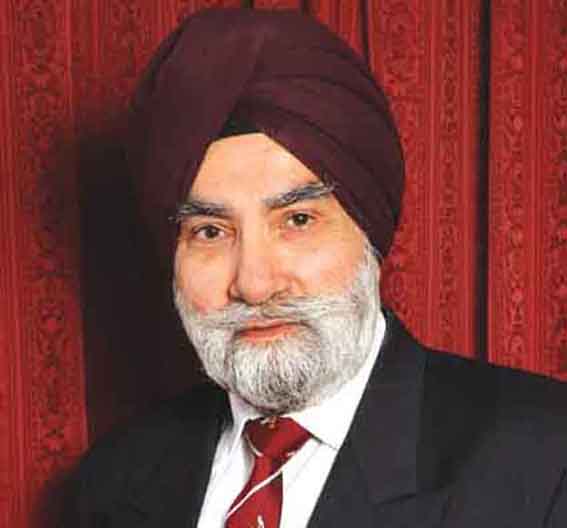Change of One Gurbani WORD Changed the Course of Sikh History

ਮਿਟੀ ਮੁਸਲਮਾਨ ਕੀ ਪੇੜੈ ਪਈ ਕੁਮ੍ਹ੍ਹਿਆਰ॥ (*see footnote)
The universal truth conveyed by the above Gurbani Pankti is that, regardless of different religious paths, all human bodies return to dust. However, when asked to explain the Pankti by emperor Aurangzeb, Baba Ram Rai, the older son of Guru Har Rai, thought it politically expedient to please the emperor by changing the word Musalmaan in the Pakti to beimaan, meaning a dishonest person. Little did Baba Ji realise the lasting consequences of that unforgiveable error, no matter how well intentioned.
Sometimes, there is a temptation to sacrifice Sikhi principle of truth above all else, for political gain. Sometimes, self-preservation instinct to remain on the right side of an authoritarian regime or to please the majority community leads one away from the path of dharam or truthful conduct. Baba Ram Rai changed one Word in Gurbani to please emperor Aurungzeb. Most probably he meant well but was not forgiven by his father-Guru. Truth is not negotiable in Sikhi.
Politically motivated Gurbani interpretation by Baba Ram Rai changed the course of Sikh history. Otherwise, Baba Ji had won over Emperor Aurungzeb with anti-Gurmat miracles and with the change of just one Gurbani Word (Musalman to beimaan). It can be argued that the future of the Sikh movement would have been secured for the time being. That the supreme sacrifice of Guru Tegh Bahadur, the shaheedis of the Four Sahibzadas and the sarbansdaan of Guru Gobind Singh, the living martyr, and the countless Sikh shaheedis which followed could have been avoided. However, the longer time price paid for not speaking the bitter truth at the right time can be much higher. Compromises lead to assimilation and annihilation of distinct qaums. Sikhi has survived because Sikhi founding principles have been upheld through countless sacrifices not by making political compromises.
Yet, there were also many influential Sikhs in Mughal darbar who continually conveyed the right universal Sikhi Message of the Gurus to the rulers of the day. Their backgrounds were Hindu and Muslim, but they were devoted Sikhs capable of daring deeds when the time came, as were the Sikhs of Delhi following the supreme sacrifice of Guru Tegh Bahadur.
Today, we can explore this Sikhi principle with reference to the state of the global Panth. Sikhs are a highly successful and prosperous community dispersed worldwide. In India, business community Sikh Indians outside Panjab, are doing well. They are wealthy, hold high positions in administration and are influential in political and government circles. Quite understandably, they are apprehensive and highly sensitive when the Sikhs of Panjab, especially those in the farming sector, or the diaspora Sikhs raise issues affecting the future of Panjab or human rights issues.
Following traumatic events like Ghalughara III of 1984 and following years, it cannot be denied that Sikhs have continued to face existential challenges. The world is too small for threats to the community in one country to be ignored by Sikhs in other countries. Yet, sometimes that seems to be the unrealistic expectation and advice of influential Sikh Indians outside Panjab.
Sikh miri-piri ideology opposes authoritarian regimes and defends the people. Upholding truth above political expediency, is the lesson we learn from the unique martyrdom of Guru Tegh Bahadur.
* Pankti meaning: []]After death) clay of a Muslim []]in the grave] is made into clods by the potter []]for making pots and bricks in fire. Otherwise, Muslims do not cremate their dead.]
Gurmukh Singh OBE
E-mail: sewauk2005@yahoo.co.uk
https://www.sikhiwiki.org/index.php/Gurmukh_Singh_OBE